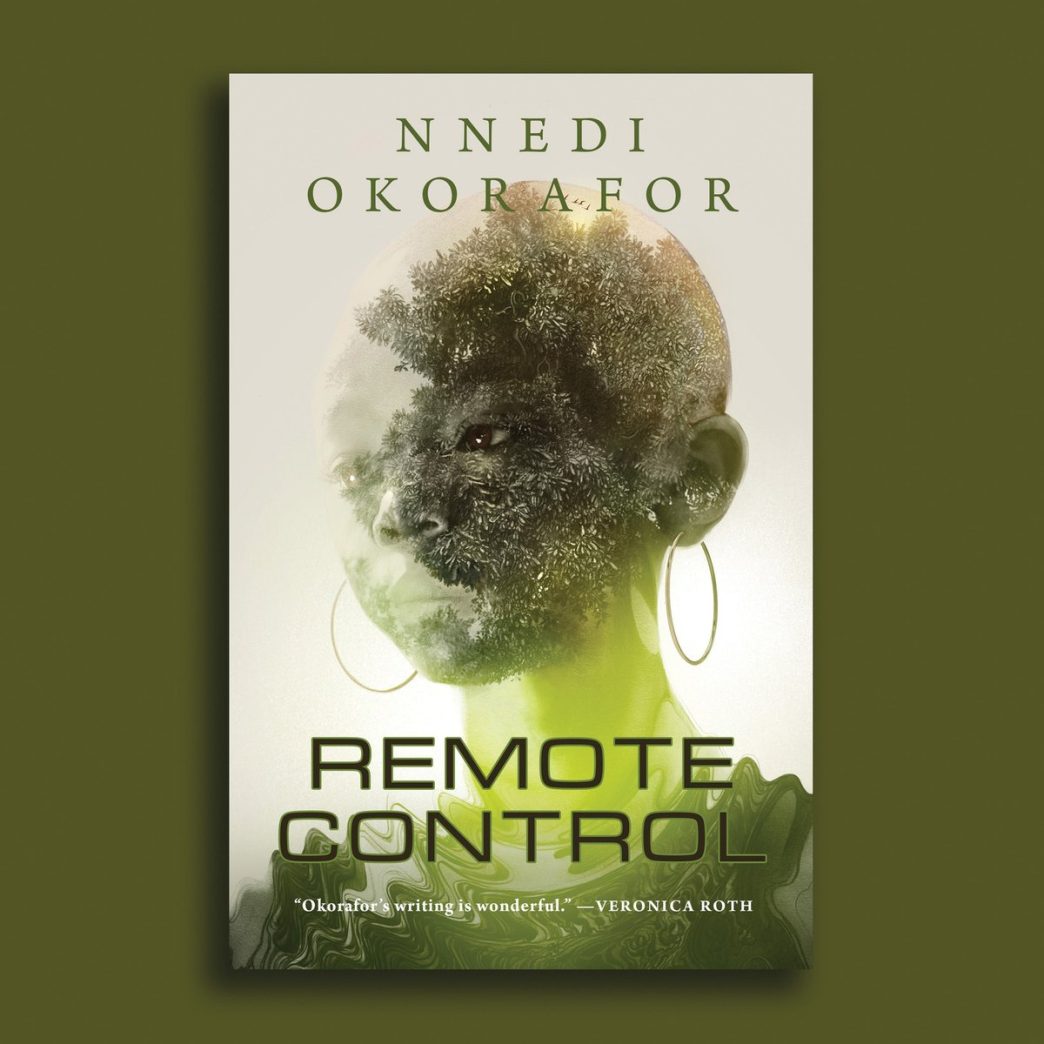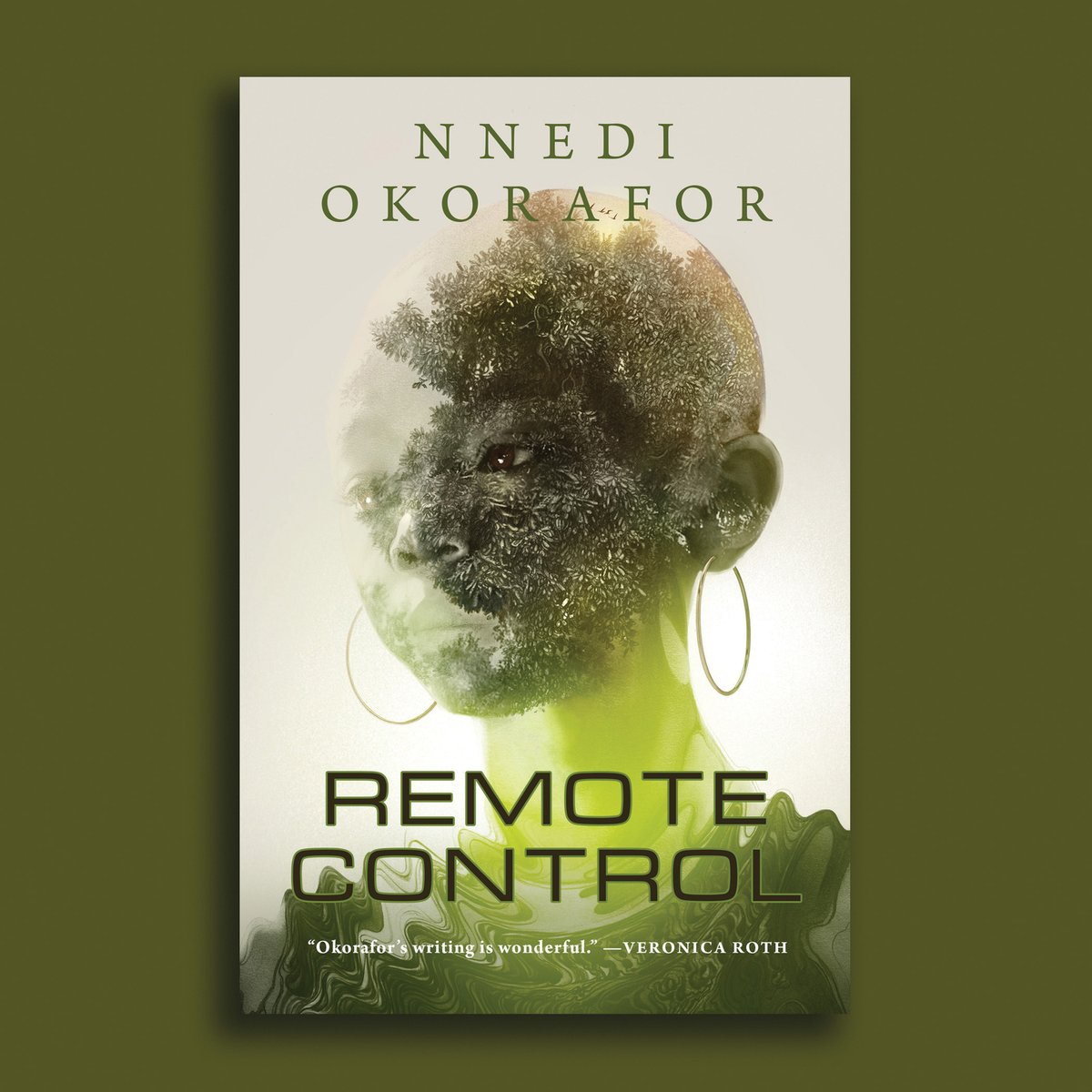Table of Contents Show
Abstract
The convergence of ecological consciousness and technological agency within Africanfuturism is garnering significant scholarly attention, reflecting a nuanced exploration of Africa’s environmental and technological narratives. This research investigates the intersection of ecological consciousness and technology in Nnedi Okorafor’s Remote Control, through the lens of Africanfuturism. The study explores how Africanfuturist literature reimagines Africa’s environmental and technological futures by blending traditional African ecological values with speculative representations of advanced technologies. It aims to highlight how the novel reflects decolonial narratives, spiritual ecology, and resistance to dominant Western paradigms of progress and development. Methodologically, the research adopts a qualitative approach, employing close textual analysis of Remote Control to examine thematic patterns, narrative strategies, and symbolic elements. In addition to human-led interpretation, the study incorporates AI-assisted reading tools, specifically large language models, to support the identification of recurring themes, structural patterns, and stylistic elements in the text. The use of AI in this research is methodological rather than critical; it does not examine AI as a subject of study or critique its application in literature, but rather employs it to augment literary analysis. Findings from the study show that Remote Control uses Africanfuturist storytelling to challenge the binaries of nature and technology, centring African spiritual and environmental worldviews while envisioning a future shaped by indigenous innovation and ecological balance. The narrative positions its protagonist as both empowered by and alienated from technology, reflecting broader tensions within African modernity.
Keywords: Africanfuturism, ecology, technology, African literature, AI
Introduction
The interplay between ecological consciousness and technological agency has emerged as a pivotal area of inquiry, reflecting society’s evolving relationship with the environment and technological advancement. Ecological consciousness refers to an awareness of and ethical consideration for the interconnectedness between human activities and the natural world, emphasising sustainability and environmental stewardship. Technological agency, on the other hand, pertains to the capacity of technology to act and influence both human and ecological systems, shaping behaviours, decisions, and environmental outcomes (Zhang and Mace 2021). In the broader context, this intersection manifests in various ways, from the development of green technologies aimed at reducing environmental footprints to the ethical debates surrounding artificial intelligence and its impact on ecological systems. Scholars have explored how technological innovations can both mitigate and exacerbate environmental issues, highlighting the dual role of technology as a tool for conservation and a potential source of ecological disruption (Zhang and Mace 2021).
Within African literature, these themes are intricately woven into narratives that reflect the continent’s unique environmental and technological experiences. African writers have long engaged with ecological themes, addressing the impacts of colonialism, modernisation, and globalisation on the natural environment. For instance, Henry Ole Kulet’s works critically examine the effects of British colonialism and modernity on African natural environments, shedding light on the ecological consequences of external interventions (Muriungi and Muriiki 2020, 40). Kulet’s novels, such as Vanishing Herds (2011) and The Hunter (2016), depict the exploitation of natural resources and its detrimental effect on local communities and ecosystems, emphasising the agency of African communities in resisting ecological degradation and advocating for sustainable practices (Nyongesa 2021).
Moreover, contemporary African literature often portrays the complex dynamics between technological progress and environmental sustainability. This is evident in narratives like Vanishing Herds and The Hunter. Such works not only raise awareness about environmental injustices but also emphasise the agency of African communities in resisting ecological degradation and advocating for sustainable practices (Muriungi and Muriiki 2020).
The integration of ecological consciousness and technological agency in African literature serves as a critical lens through which authors explore the continent’s challenges and aspirations. By examining the multifaceted relationships between humans, technology, and the environment, African writers contribute to a global dialogue on sustainability, ethics, and the future of our planet (Zhang and Mace 2021, 10). This research therefore investigates how Nnedi Okorafor, a Nigerian-American science fiction and fantasy writer, uses Africanfuturist storytelling, a science fiction subcategory, to challenge dominant narratives on technological power and environmental sustainability. It examines the intersections of ecological consciousness and technological agency in Remote Control (2021), Okorafor’s science fiction novella, particularly in the way the protagonist’s journey reflects resistance, reclamation, and adaptation in a rapidly changing world.
Research Questions
This study aims to answer the following questions:
- How does Remote Control portray the relationship between technology and ecological consciousness?
- How does Okorafor’s narrative engage with traditional African spiritual and ecological perspectives while envisioning a technological future?
- What role does Remote Control play in shaping discourses on Africa’s technological and environmental futures?
Literature Review
The convergence of ecological consciousness and technological agency within Africanfuturism has garnered significant scholarly attention, reflecting a nuanced exploration of Africa’s environmental and technological narratives. Previous scholarship on Okorafor’s work has explored themes of technoculture, postcolonial resistance, and ecofeminism (Adesanmi and Dunton 2005; Ndibe 2019). Scholars like Eshun (2003) and Talabi (2020) have examined the role of African science fiction in reimagining technology beyond Western-dominated paradigms.
Africanfuturism, a term coined by Nnedi Okorafor, is characterised by its foundation in African culture, history, mythology, and perspectives, extending into the African diaspora without centring the West. This genre envisions futures that are deeply rooted in African contexts, often incorporating elements of technology and space exploration while maintaining a strong connection to African traditions and worldviews. Okorafor (2020) emphasises that Africanfuturism is “concerned with visions of the future, is interested in technology, leaves the earth, skews optimistic, is centred on and predominantly written by people of African descent (black people) and it is rooted first and foremost in Africa.”
A salient theme within Africanfuturist literature is ecological consciousness, reflecting a deep awareness of environmental issues and the interdependence between humans and nature. Authors utilise speculative fiction to address environmental degradation, climate change, and sustainable practices, often intertwining these themes with African spiritualities and philosophies that emphasise harmony with the natural world. For instance, Okorafor’s novel Lagoon (2014) combines Africanfuturism with environmental activism, highlighting how traditional knowledge and futuristic visions can promote ecological sustainability (Ogunsiji 2024).
Technological agency in Africanfuturist works explores how technology influences and is influenced by African societies. This includes narratives where technology serves as both a tool for empowerment and a potential source of conflict, reflecting the complex dynamics between technological advancement and cultural preservation. In Okorafor’s Noor (2021), the protagonist’s journey as a cyborg woman delves into themes of identity, technology, and environmentalism, prompting readers to reconsider human relationships with the environment and advocating for sustainable technological advancements (Aja 2022).
Africanfuturism also functions as a decolonial framework, challenging Western-centric narratives by asserting African perspectives on technology and ecology. This genre reimagines development and progress through an African lens, often portraying futures where African societies lead in technological innovation while maintaining ecological balance. Such narratives perform “decolonial dreamwork,” envisioning futures that break away from colonial legacies and redefine development as a form of rebellion against imposed structures (Hanchard 2022).
In film, Africanfuturism continues to explore these themes. Wanuri Kahiu’s short film ‘Pumzi’ portrays a dystopian future Kenya where natural resources are scarce, and a scientist ventures beyond her controlled community to nurture a plant, symbolising hope and ecological restoration. The film challenges pessimistic representations of African realities by showcasing African-led creativity and resilience in addressing environmental challenges (Nyawalo 2016).
The literature on Africanfuturism reveals a rich tapestry of narratives that intertwine ecological consciousness with technological agency. By centring African experiences and perspectives, these works offer alternative visions of the future that challenge dominant paradigms, promote environmental sustainability, and celebrate technological innovation rooted in cultural authenticity. This genre not only redefines science fiction but also contributes to broader discussions on decolonisation, environmentalism, and the role of technology in shaping societies. Therefore, this research builds on these discussions by analysing how Remote Control contributes to Africanfuturist thought, focusing on the novel’s representation of technology as both a tool of oppression and liberation, as well as its engagement with environmental ethics and sustainability.
Theoretical Framework
This study draws from:
- Africanfuturism (Okorafor 2019) to analyse the novel’s reimagining of Africa’s technological destiny; and
- Postcolonial Ecocriticism (Huggan and Tiffin 2010) to explore the intersection of environmental degradation, colonial histories, and speculative futures.
Methodology
This study adopts a qualitative research design grounded in literary analysis to examine the intersection of ecological consciousness and technological agency in Nnedi Okorafor’s Remote Control. The primary method of analysis is close reading, where I will critically engage with the text to uncover themes, symbols, and narrative strategies related to Africanfuturism, environmental ethics, and technological agency. This method will be complemented by the use of AI chatbots (specifically, large language models) to assist in identifying recurring motifs, character dynamics, and stylistic patterns. The AI tools will serve as supplementary aids, offering textual insights and comparative interpretations that support human-led analysis while preserving the integrity of scholarly interpretation.
Significance of the Study
This study contributes to ongoing discussions on African science fiction and its role in shaping narratives about Africa’s future. This study is significant as it expands the discourse on Africanfuturism by examining its intersection with ecological consciousness and technological agency. While African speculative fiction is often explored through themes of identity and postcolonialism, this research highlights African speculative fiction’s engagement with environmental sustainability and ethical technology use. By analysing Remote Control, the study situates Nnedi Okorafor’s work within the broader African literary tradition that integrates folklore, science fiction, and contemporary ecological concerns. It contributes to African literary studies by showcasing how Africanfuturist narratives offer alternative visions of the future, blending indigenous knowledge systems with speculative technology to challenge Eurocentric perspectives on development and progress.
Beyond literature, this study bridges environmental humanities and technological discourse, demonstrating how fiction can serve as a platform for addressing pressing global issues such as climate change, sustainability, and digital ethics. It holds relevance for educators, policymakers, and environmental advocates, offering insights into how African narratives can inform discussions on ecological justice and responsible technological advancement. Ultimately, this research affirms the role of African speculative fiction in shaping decolonial and sustainable futures, emphasising the power of storytelling in reimagining Africa’s relationship with technology and the environment.
Conclusion
This research explores the intersections of ecological consciousness and technological agency in Nnedi Okorafor’s Remote Control within the framework of Africanfuturism. By situating the novel in the broader discourse of African speculative fiction, the study examines how Okorafor challenges conventional narratives about Africa’s technological and environmental futures. Africanfuturism, as a genre, not only reimagines the continent’s engagement with technology but also foregrounds indigenous ecological knowledge, spiritual cosmologies, and alternative models of sustainability. Through an analysis of Remote Control, this research investigates how Okorafor portrays power, environmental awareness, and the ethical implications of technological advancement in a rapidly changing African landscape.
The study contributes to African literary scholarship, environmental humanities, and decolonial theory by demonstrating how African speculative fiction serves as a medium for exploring global concerns from an African perspective. It underscores the significance of literature in addressing ecological crises and ethical technology use while offering alternative visions of sustainable and decolonial futures. Ultimately, this research affirms the role of Africanfuturism in reclaiming power by reimagining Africa’s relationship with nature, technology, and agency, positioning storytelling as a vital tool for shaping more equitable and sustainable worldviews.
Acknowledgments
I am deeply grateful for the invaluable support and guidance I received throughout the Research Round Fellowship. My sincere thanks go to the mentors who generously shared their expertise, challenged my thinking, and encouraged me to expand the boundaries of my research. To the facilitators, thank you for creating an engaging, thoughtful, and inclusive learning environment. Lastly, I am thankful to the organisers of the LUNE AI.Humanities.Social Sciences Fellowship. This platform has been more than a programme. It has been a springboard for growth, connection, and innovation.
References
Eshun, K. 2003. “Further Considerations on Afrofuturism.” CR: The New Centennial Review 3 (2): 287–302.
Haraway, D. 1985. “A Cyborg Manifesto: Science, Technology, and Socialist-Feminism in the Late Twentieth Century.” Socialist Review 80: 65–108.
Huggan, G., and H. Tiffin. 2010. “Postcolonial Ecocriticism: Literature, Animals, Environment.” New York: Routledge.
Okorafor, N. 2019. “Africanfuturism Defined.” nnedi.com.
Talabi, W. 2020. “African Science Fiction and the Politics of Imagination.” African Identities 18 (3): 215–229.
Kulet, H. O. 2011. “Vanishing Herds.” Nairobi: Longhorn Publishers.
Kulet, H. O. 2016. “The Hunter.” Nairobi: Longhorn Publishers.
Muriungi, P., and P. Muriiki. 2020. “The Subdued Nature: Reading Henry Ole Kulet’s Vanishing Herds through Eco-Marxist Lenses.” Research Journal in Modern Languages and Literatures 9 (1): 35–47.
Nyongesa, A. 2021. “Humanity and Mother Nature: Ecological Reading of Ole Kulet’s Blossoms of the Savannah.” Kenya Studies Review 9 (1): 35–47.
Zhang, W., and G. M. Mace. 2021. “Ecological Civilization: Perspectives from Ecology and Economics.” Ecosystem Health and Sustainability 7 (1): 1–11.
Aja, E. 2022. “Africanfuturism and Climate Fiction: Nnedi Okorafor’s Noor.” Journal of African Literature and Culture 15 (2): 123–135.
Hanchard, M. 2022. “Africanfuturism as Decolonial Dreamwork and Developmental Rebellion.” Journal of Postcolonial Writing 58 (1): 45–59.
Nyawalo, M. 2016. “Afrofuturism and the Aesthetics of Hope in Bekolo’s Les Saignantes and Kahiu’s Pumzi.” Journal of the African Literature Association 10 (1): 31–45.
Ogunsiji, A. 2024. “Reimagining Futures: Environmental Activism and African Futurism in Nnedi Okorafor’s Lagoon.” American Journal of Environment and Climate 3 (2): 35–47.
Okorafor, N., editor. 2020. “Africanfuturism: An Anthology.” Lagos: Brittle Paper.













